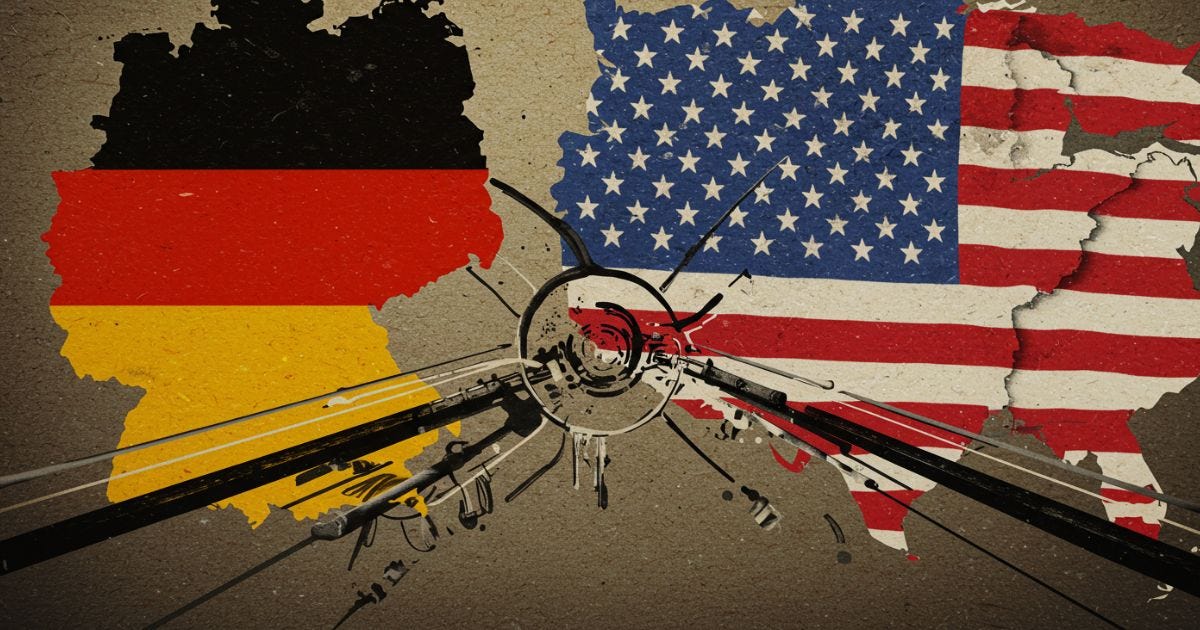The US and Germany Clash Over Security, Trade, and Trust
Trump’s “America First” approach meets European calls for unity, exposing deep cultural divides.
Germany's reaction to Trump shows deep cultural splits in how nations work together. As Germany’s Friedrich Merz warns it's "five minutes to midnight for Europe," we see big differences in how Americans and Europeans view control, rules, and teamwork.
What's Happening
Conservatives win with second worst post-war result
Merz doubles down on fears over US policy
Far-right AfD surges to win 20.8% of vote
Focus on debt brake to tackle economic slump
Trump takes one approach: America makes decisions on its own, likes direct deals, and puts America first. Merz takes another: Europeans must work together, follow diplomatic rules, and build shared security.
These different views clash when Merz criticizes possible US-Russia deals made "over the heads" of Europeans while also saying Europe must build its own defense.
Should nations act alone or work through alliances? It all depends on your Cultural Perspective.
Why It Matters
These cultural differences matter because they're changing how nations work together on security issues that the US made and have kept the peace for decades.
When Trump pushes "America First" while European leaders like Merz want group decisions, they're working from completely different cultural perspectives. This split threatens the teamwork that has kept America and Europe close allies.
This gap shows up when Merz calls it "unacceptable" for America to make deals with Russia without talking to Europe. Yet he also warns that Europe must build its own defense – showing the tension between wanting group input while getting ready to stand alone.
The AfD's rise to become Germany's second-largest party shows how these global splits mirror problems at home too. Their support for more nationalistic ideas looks a lot like Trump's approach, creating divisions within and between countries.
Neither cultural approach is better than the other – they just reflect different values shaped by different histories and places in the world.
What It Means
Three key cultural patterns create real problems for relations between America and Europe.
First, we see a split in how nations handle control versus adaptation. Merz wants Europeans to "build up their own defense capabilities," showing a culture that believes in taking control. Yet his criticism of America making deals "over the heads" of Europeans shows frustration with having to react to decisions made elsewhere.
This control imbalance creates tension when Merz criticizes American go-it-alone actions while pushing for European self-reliance. His warning that it's "five minutes to midnight" shows the stress of shifting from relying on US protection to building European defense independence.
Second, there's a clash between rule-based and deal-based approaches. Germany expects consistent rules for everyone. This shows when Merz warns against Washington creating "divisions by offering preferential tariffs to some European Union members."
Meanwhile, Trump prefers making specific deals based on individual relationships and situations. This difference creates big problems when European expectations for rule-following diplomacy hit against Trump’s deal-making style.
We see the results when Merz criticizes "outrageous comments" from Trump's team. This strong language shows how upset rule-following cultures get when diplomatic norms are ignored.
Third, we see the contrast between "me first" and "group first" approaches to security. Merz directly challenges the "America First" idea, warning it could become "America Alone." This reflects Germany's more group-oriented approach, where European security is everyone's job.
This divide is clearest in Merz's worry about deals with Russia being made "over the heads of Ukraine." The "me first" culture likes direct deals that help national interests, while the "group first" culture insists everyone affected must have a say.
These different cultural approaches aren't just ideas – they're actively changing how nations work together, potentially weakening the Ameican built security structures that have kept Europe stable for decades.
What's Next
These cultural divisions will likely grow unless both sides find ways to bridge their different approaches to international relations.
Look for more European spending on defense as they take more control of their security, no longer fully trusting US protection. This shift will be hard and expensive but shows a big change in how Europe sees its place in the world.
The clash between rule-based and deal-based approaches will keep causing problems in trade, with Europe wanting consistent rules while America seeks special deals. European leaders will struggle to adapt their expectations to America's more chaotic approach.
The tension between "me first" and "group first" security approaches will force tough talks about NATO's future and Europe's role in global diplomacy. Europeans must decide how much they can count on group action when America increasingly follows its own interests.
Success will require finding balance between these competing cultural views. Europeans must take more control while Americans recognize the value of group approaches to complex global problems. Cultural differences shouldn't stop cooperation on shared interests, but understanding these differences is the key to success.





